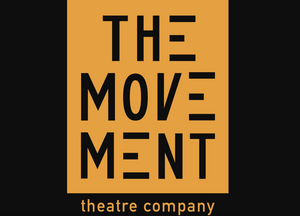Regional Spotlight: How The Movement Theatre Company is Working Through the Global Health Crisis

Now more than ever it is important to support theater and do our part to keep the art form that we love so much alive and as thriving as it can be during these unprecedented times. While the global health crisis has temporarily put the theater world on hold, pausing all live performances and large gatherings to help stop the spread of COVID-19, theaters around the country have taken a hit. During this time of adjusting to our temporary new normal, theaters are figuring out how to take care of their team, and discovering the best ways to virtually bring theater to audiences.
Through our regional theater interview series, we are checking in with theaters all around the country, talking to them about how they are handling these difficult circumstances, learning what they are doing to move forward, and discovering the best way for people to help regional theaters during this time.
Today we're checking in with Movement Theatre Company!
First of all, I want to check in on the health and wellbeing of everyone at The Movement Theatre Company. How is everyone doing during this difficult time?
Physically, we're all thankfully safe and healthy. Emotionally and mentally, it varies from day to day as we personally and collectively continue to fight for Black folx who have been murdered by those protected by white supremacy. We're rageful, energized, exhausted, invisible, sorrowful...the list goes on. We're grateful to have each other and are encouraged by the uprising that is happening to combat anti-Blackness and to hold police accountable.
What do the days look like right now for those who work at The Movement Theatre Company?
We're all working from home. Most of our team meetings have been remote since before the stay-at-home orders because we were often in different cities working on projects, so meeting on Zoom and chatting via text is nothing new to us. Our top priorities are making sure we're taking care of ourselves and approaching any programming we decide to do with the intention of serving the direct needs of our artists.
How much planning is going on both short term and long term for the theater?
We initially embraced the pause, taking the time to center our safety and wellbeing as people first. Then we began focusing on administrative long-term projects so we can strengthen our foundation (getting a new donor database, redesigning our website, etc., all the things we never have time to prioritize in the midst of producing). After a few weeks of adjusting, we wanted to create a space of joy, connection, and release for our community, so we hosted two dance parties via Zoom (shoutout to the incredible DJ Shine!). Now we're launching 1MOVE: DES19NED BY..., a designer-driven online gallery that will live on our website (www.themovementtheatrecompany.org) after hearing the overwhelming need for a place for theatre designers to create digital theatrical content; we're also working with Aleseha Harris and Whitney White on resources inspired by What To Send Up When It Goes Down so we can provide ways for our Black community to heal during this time.
Do you have plans to bring any previously filmed productions/upcoming events/classes etc. online?
We're planning to launch a second round of 1MOVE: DES19NED BY... as well as figuring out how to create more spaces and platforms for education and connection. As artists and activists, we want to continue to hold space and provide paid opportunities for our artists and community to share their work and knowledge related to our current moment.
What is the best way for people to help The Movement Theatre Company right now?
We believe this is a moment for the American theatre and the nation at large to collectively and consistently take bigger action. Donate to bail funds, protest in person or online, advocate for the services our communities need like access to healthcare, broadband and education. Also, BIPOC arts organizations have been historically underfunded and don't have the cushion as many larger institutions do to weather this crisis, so that support is needed both now and in the future when theatre spaces are able to reopen.
Videos

